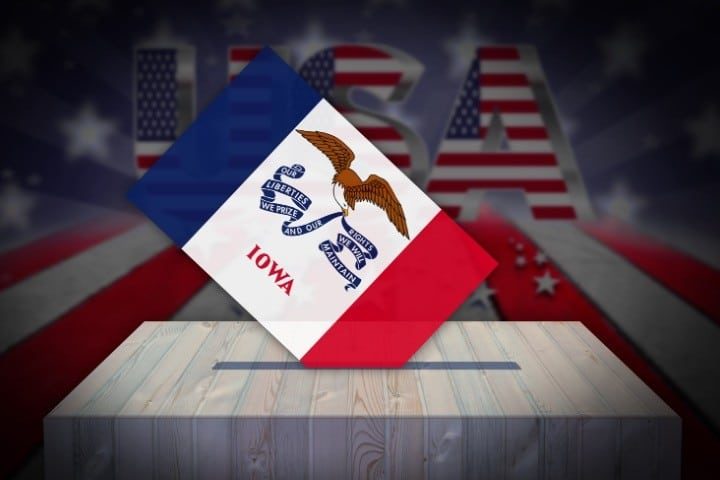
Move over, Iowa, you are too white and too rural — at least that is the message sent loud and clear by Democratic Party leaders. On Friday, the Rules Committee of the Democratic National Committee (DNC) voted to end Iowa’s status as the first state in the nation to vote in the delegate selection process for the Democratic Party.
President Joe Biden, who finished a dismal fourth in the 2020 Iowa caucuses, with only 15.8 percent of the vote and a mere six delegates, urged the change.
Iowa’s caucuses have launched the selection of delegates for both the Democratic and Republican parties since 1972, when then-Senator George McGovern of South Dakota won the contest on his way to the nomination that year. In 1976, a little-known former governor of Georgia, Jimmy Carter, used his strong finish in the Iowa caucuses to propel his successful bid for the Democratic nomination. Carter went on to defeat President Gerald Ford in the general election.
In 1980, former CIA Director George Bush stunned former California Governor Ronald Reagan on the Republican side in an upset (although Reagan went on to easily best Bush for the Republican nomination at the national convention in Detroit, Michigan).
Iowa has a storied history in the selection process. Rather than using a primary, in which all registered voters can cast ballots, much in the manner of other elections, Iowa uses “caucuses.” In a caucus, voters must attend a meeting of fellow party members, usually held in public buildings or private homes. Caucus attendees cast votes for a candidate, and the caucus votes are then tabulated for state-wide results, which determine how many delegates a candidate is entitled to at the party’s national convention.
In 2020, South Bend, Indiana, Mayor Pete Buttigieg finished first, with 26.2 percent of the vote, winning fourteen delegates, while Biden finished fourth, behind Senator Bernie Sanders of Vermont and Senator Elizabeth Warren of Massachusetts.
Taking Iowa’s place as the first state to hold a contest in 2024 — at least on the Democratic side — will be South Carolina. After Biden was beaten badly again in New Hampshire, garnering less than 10 percent of the vote and no delegates there, he won the South Carolina primary, largely because of the support of black voters. House Majority Whip Jim Clyburn of South Carolina, who is black, was credited with swinging the state’s contest to Biden.
“I didn’t ask to be first,” Clyburn insisted. “It was his [Biden’s] idea.”
Biden told the committee in a letter on Thursday that he wanted them not only to end Iowa’s status as first to choose delegates, but to get rid of caucuses altogether, arguing that expecting people to show up at caucus meetings often excludes working-class voters. He added that he preferred that South Carolina replace Iowa as first on the calendar to keep voters of color from being marginalized.
However, Scott Brennan, a Rules Committee member from Iowa, countered that it was “small, rural states” like his that are being marginalized by the new schedule. He told the full committee that small, rural states like Iowa “must have a voice in the presidential nominating process.”
He added, “Democrats cannot forget about entire groups of voters in the heart of the Midwest without doing significant damage to the party in newer generations.”
In fact, some states may ignore the DNC directive, despite the threat that states not in compliance could lose all of their delegates to the party’s national convention if they do not accept being moved to later in the cycle. Both Iowa and New Hampshire presently have laws that require that they go before other states, but committee members from those two states were the only ones opposing the changes.
It was explicit in the discussions that both Iowa and New Hampshire are considered just too white and that the Democratic Party must recognize the importance of black voters, the most loyal segment of their base.
New Hampshire has hosted the nation’s first primary since 1920, but they also will have to give way to South Carolina — another primary state — and share second place with Nevada. Nevada was moved up in an apparent effort to attract more Hispanic support.
South Carolina will now vote on February 3, followed by Nevada and New Hampshire three days later, then by Georgia, and then Michigan.
Iowa will be relegated to later in the cycle.
Apparently Georgia and Michigan are seen as swing states, considering that Donald Trump carried them both in 2016 before losing them both in the controversial 2020 election.
How the people of Iowa and New Hampshire will react to the snub remains to be seen.
The full DNC will have to approve of the action by the Rules Committee when they meet early in 2023.



